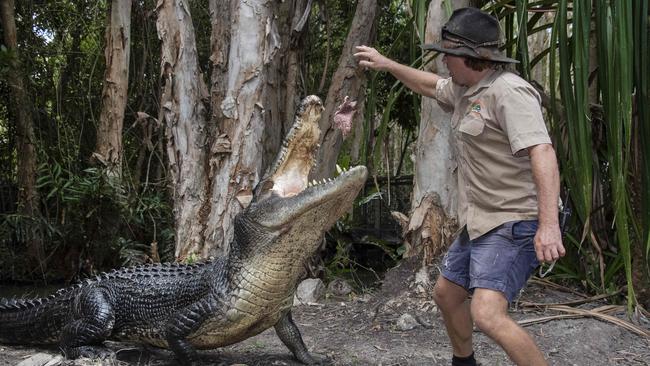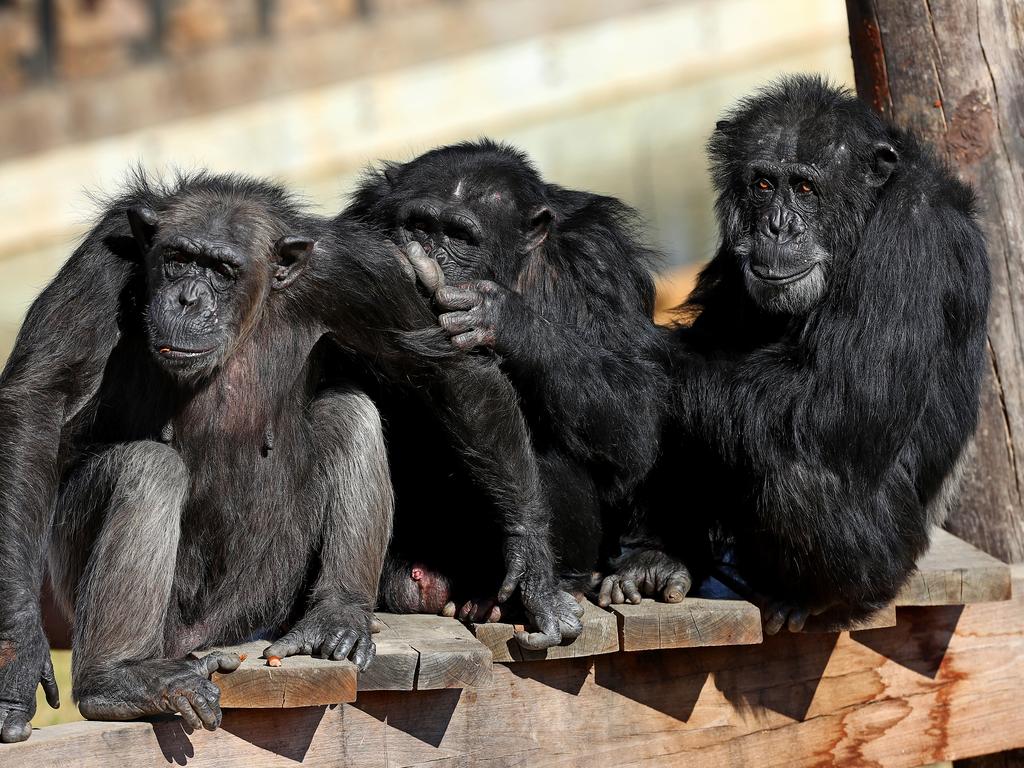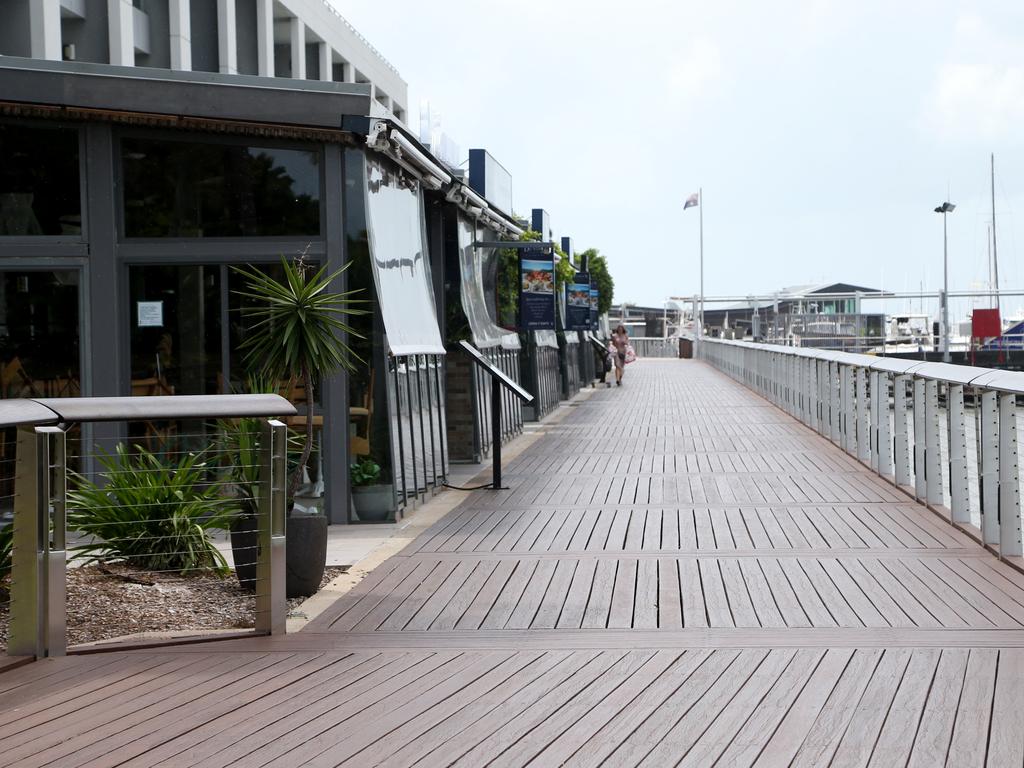Coronavirus Australia: Nosediving tourism ‘can’t survive winter’
Flight Centre CEO says tourism companies will be ‘decimated’ if domestic travel restrictions aren’t lifted within a month.

Flight Centre chief executive Graham Turner says many tourism companies will be “decimated” if domestic travel restrictions are not lifted within a month. New analysis shows more than 100,000 tourism workers have lost their jobs in the COVID-19 pandemic.
Mr Turner, whose ASX-listed travel agency has had to reduce its staff numbers from 22,000 to 5000, said no amount of government assistance would help the industry if interstate travel restrictions were enforced through winter.
He predicts the industry will be up to 30 per cent smaller by 2022 as he urged the government to fast-track opening the border with New Zealand to allow some international tourism.
“They could spend another $300bn and it won’t save the industry. The sector is in dire straits,” Mr Turner told The Australia.
“If it goes on for more than the next few weeks or month, then a lot of the domestic tourism will take a lot longer to recover because so many of the smaller operators will be decimated.
“The domestic tourism market is of a sufficient size that it will be able to save a reasonable number of (businesses) if it is not too protracted.”
Tourism Minister Simon Birmingham told The Australian it would be “many years” before the international aviation and cruise industries recovered from the pandemic as the government unveiled a $95m fund to support zoos affected by shutdowns.
Angela Freeman, who operates Hartley’s Crocodile Adventures wildlife park in north Queensland with husband Peter, said the family-run business was losing $170,000 a month.
The Freemans have been forced to lay-off 55 staff across three wildlife tourism businesses.
“Impact-wise, it’s a huge one emotionally because we feel gutted about doing that. For a family business where you know everyone personally, it’s just awful,” Ms Freeman said.
About one in six workers in tourism, or some 100,000 people, have already lost jobs as a result of the collapse in tourism, according to exclusive analysis by KPMG.
Tourism turnover has plunged by about a fifth, according to calculations based on recent tax office payroll data collected by the Australian Bureau of Statistics.
KPMG chief economist Brendan Rynne said the employment numbers would likely be worse by now, given the data was accumulated in April.
“If tourism is being disproportionately affected by the COVID crisis compared to other sectors — as you would expect — then those numbers may be materially higher,” Mr Rynne said.
With most international routes likely to be shut for at least the rest of the year, companies such as Flight Centre and Intrepid Travel are revamping their travel packages to cater for local rather than international travel.
Tourism Australia managing director Phillipa Harrison said the body would overhaul its strategy to promote domestic destinations to Australians.
“Tourism Australia is going to be focusing on encouraging those people to holiday in their own backyard next year and take some of those things that they have had on their bucket list for a while and do those,” Ms Harrison said.
“So talking about all the incredible things there are to explore in Australia like our great walks ... some amazing lodges, we have also got natural assets like Uluru and the Great Barrier Reef that really have had an international focus up until now.”
Ms Harrison said the sector would be bolstered if the border was reopened to New Zealand this year.
“New Zealand is our second-biggest inbound market,” she said.
Intrepid Travel Australia chief executive James Thornton said the tour company had to reduce its workforce by a third because of the pandemic.
“We are now thinking of alternative revenue-generating ideas,” he said.
“We are busily building domestic travel programs to encourage Australians to travel with Intrepid in their own backyard.”
Senator Birmingham said the government would encourage Australians to travel when domestic restrictions were lifted and would consider further industry support if necessary.
“Those parts of Australia’s tourism industry that are more reliant on international markets will likely have a slower road back,” Senator Birmingham told The Australian.
“Internationally, I think we are quite some way off seeing borders open and travel opportunities for people either in or out of Australia ... until such time as we see a vaccine or other long-lasting solution.
“But the global aviation and cruise industry are clearly going to take many years to recover and in the case of the cruising industry, (it) will have a lot of work to do to establish credibility with both potential passengers and regulators,” he said.
Clint Feuerherdt, chief executive of SeaLink Travel Group — a listed company that runs cruises in tourist hot spots around Australia — urged the government to use more stimulus measures to promote domestic travel when restrictions eased.
“We really need to do that at the consumer end by providing a tax incentive, perhaps, to take a domestic break,” Mr Feuerherdt said.
Direct tourism contributed $60.8bn to the economy in 2018-19, or 3.1 per cent of national output, on ABS figures, suggesting a hit of up to $5bn to GDP for each month the sector is closed.
Total tourism-related spending was $152bn in the last financial year, a quarter of which was attributed to international travellers.
Tourism employed 666,000 people as at June last year, or about 5 per cent of the workforce.







To join the conversation, please log in. Don't have an account? Register
Join the conversation, you are commenting as Logout